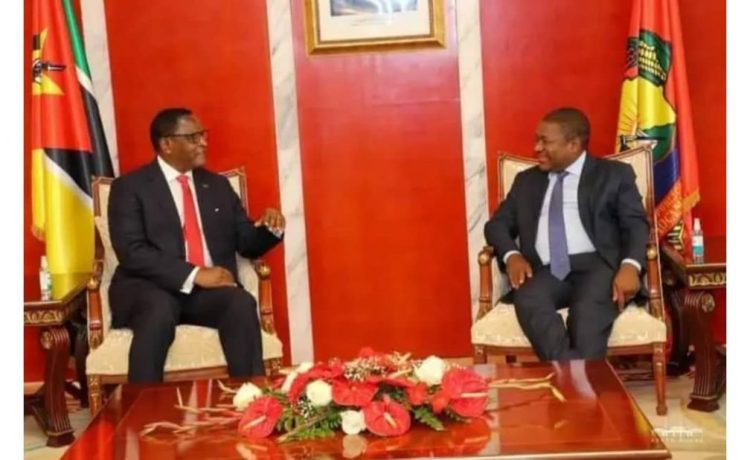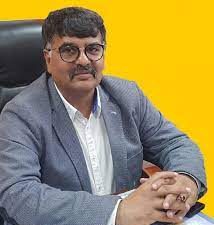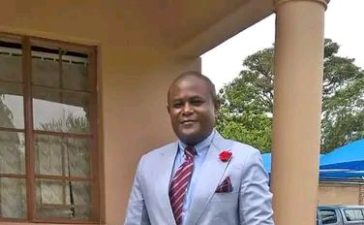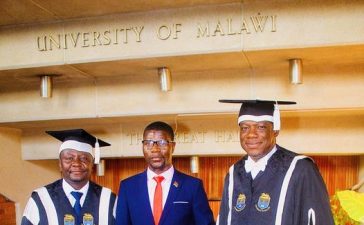Unlike during the Democratic Progressive Party (DPP) era when the diplomatic relations between Malawi and Mozambique reached an all-time low, the Malawi Congress Party era of President Lazarus Chakwera has resuscitated the status quo.
The latest development is that Mozambiquan President Felipe Nyusi has granted land at Nacala Port for Lilongwe to build its own infrastructure to handle cargo.
“This is very true. President Felipe Nyusi granted a plot to His Excellency Lazarus Chakwera in Nacala in which Malawi should develop facilities for processing of liquid and dry cargo,” confirmed Alfonso Chikuni, Malawi’s Secretary for Energy.
“We are visiting the plot tomorrow [today],” he added in an interview yesterday.
It is a diplomatic groundbreaking development that not only strengthens the two countries’ bilateral ties but could also help Malawi cut transport costs and reduce prices of goods, including fuel, fertilizers, and other imports.
The development could also boost Chakwera’s strong standing on foreign policy for pulling off a feat that five of his predecessors failed, including the late Bingu wa Mutharika whose Nsanje Inland Port dream turned into a nightmare after diplomatic missteps with Maputo.
“This has not happened by accident. It has happened because relations between Malawi and Mozambique have improved tremendously over the last three years,” said Malawi High Commissioner to Mozambique Wezi Moyo in an interview this week.
She added: “From the word go, President Chakwera was very intentional about improving relations with Maputo, so he put a lot of attention on Mozambique.
“He has traveled to this country more than any other Malawian President. Those efforts have now started bearing fruits for us Malawians.”
On the Nacala land, Lilongwe plans to build a version of Malawi Cargo Centre (MCC) in Tanzania.
Under the Malawi-Tanzania Corridor Transport System Agreement, Malawi was granted land to lease in Dar es Salaam and Mbeya where inland port and port handling facilities were constructed and installed to facilitate the movement of goods destined to or originating from Malawi.
The facilities are designed to handle both dry and wet cargo and include rail sidings, rolling stock, locomotives, warehouses, cargo handling equipment, fuel farms, fuel pipelines and housing, among others.
The facilities operate as independent units and are collectively known as Malawi Cargo Centres.
Malawi Cargo Centres Limited (MCCL) was established to manage, promote and market the assets and facilities of the MCCs. They operate as dry ports where they are a one-stop shop for the clearance and consolidation of goods. Within the premises of the MCCs are customs officials while MCCL acts as clearing and forwarding agent.
Government will have to decide on the Nacala facility’s operating model, whether to go for a public-private sector partnership or set up a fully-fledged State enterprise to optimise the direct port-rail link that Nacala provides to Blantyre and later to Lilongwe through Liwonde.
National Oil Company of Malawi (Nocma) director of operations Micklas Reuben said in an interview that the parastatal will take the lead in moving goods, fuel in its case, from Nacala via rail, having already identified Geneva-based Augusto Energy to lift 83 000 tonnes (196 million litres) of fuel through Nacala.
As a starting point, he said Nocma is currently processing 2.5 million litres in roughly 56 wagons from Nacala to its depots at Matindi in Blantyre.
“Since our rail can support 16 wagons, it means that we can offload the 56 wagons carrying 2.5 million litres within a week,” Reuben said, emphasizing the efficiency of the Nacala route.
Filomene Bene, a senior executive at the Mozambique company CFM that runs railways and ports, urged Malawi to diversify port usage to Nacala because unlike Beira, which they also manage, Nacala is not very busy.
In addition, she said, Nacala’s harbour is so deep that it does not require the constant dredging that Beira, the current port of choice for the Malawi market, needs.












